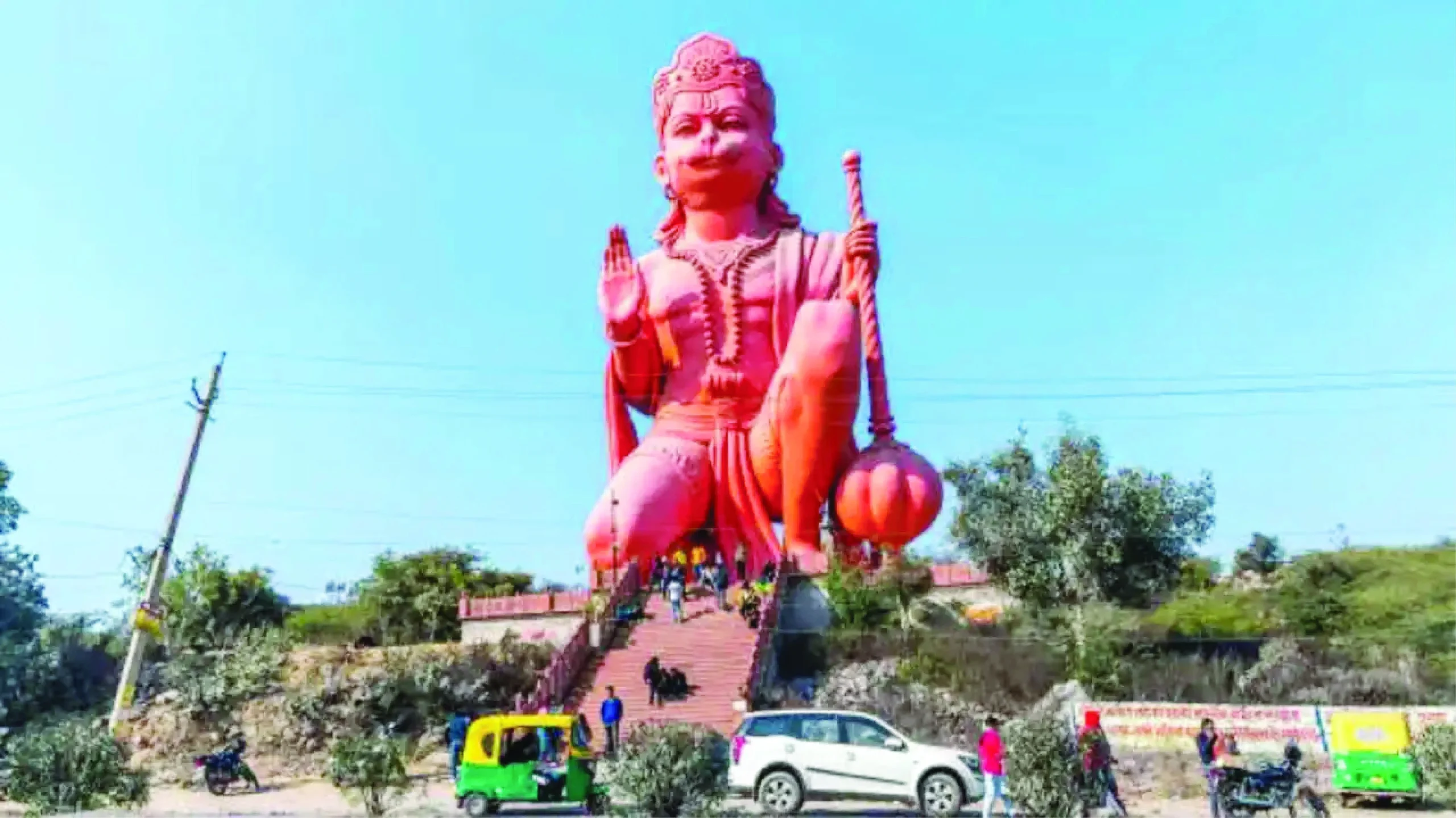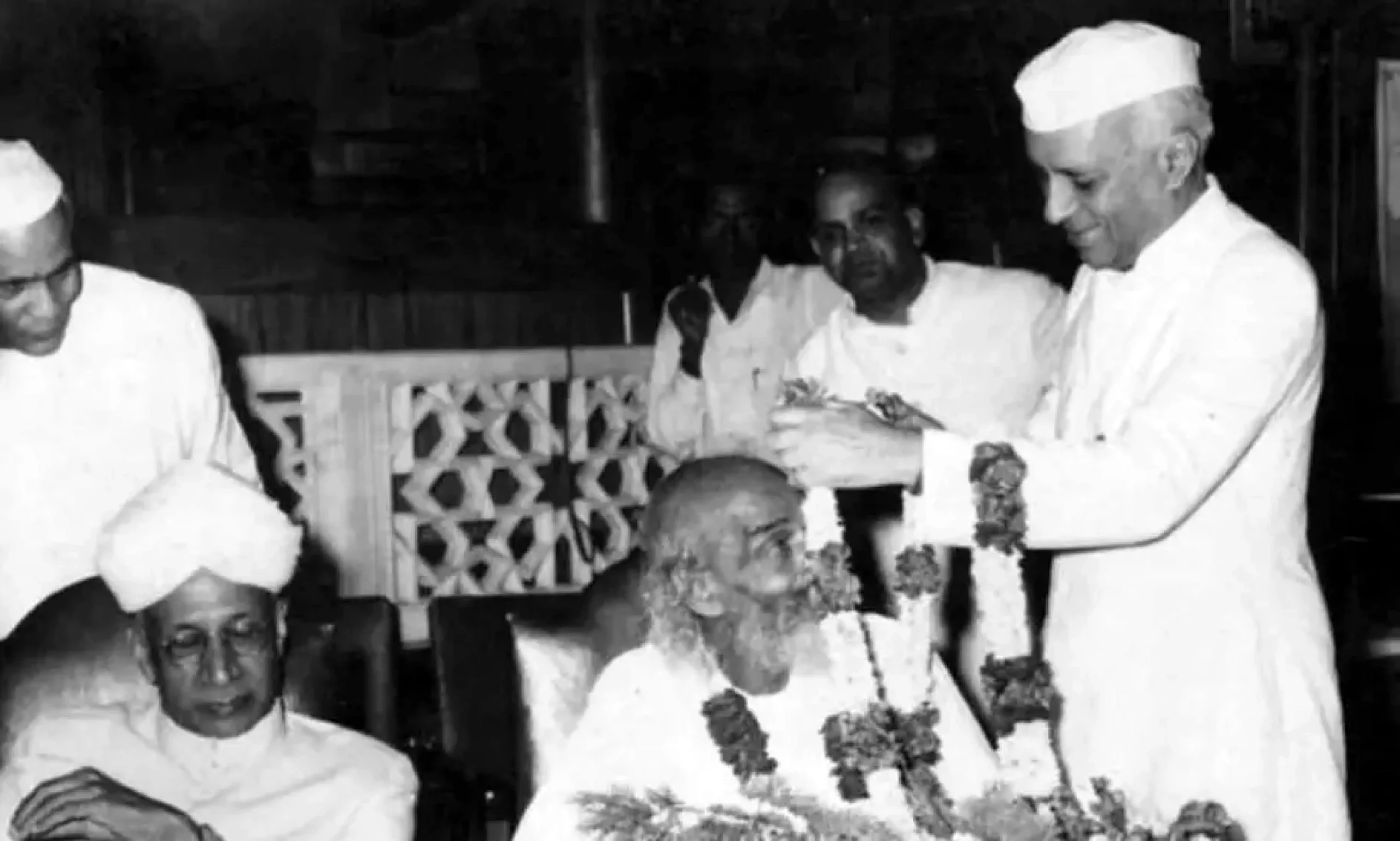Human civilizational discourse is privy to multiple instances signifying unity and togetherness of not only humans but of other creatures as well. A well-known English idiom ‘birds of a feather flock together’ signifies this. The phrase has been originally attributed to the ancient Greek storyteller Aesop, both directly in his fable “The Four Oxen and the Lion” and indirectly in “The Bundle of Sticks”. Plato’s Republic mentions that “Men of my age flock together”. Many other cultures, namely, Russian, Japanese, Swedish, German and Chinese have proverbs having similar intent. The implication of these idioms may mean that people befriend those with whom they can serve common purpose or cherish common values of life. Unity amongst tiny ants and fishes, depicted during their movement, are also excellent examples for humans to emulate.
Similarly, the phrase ‘United we stand and divided we fall’ finds its reference in the biblical phrase from New Testament translated into English from the historic Greek as “And if a house be divided against itself, that house cannot stand”. This implies that every kingdom or house divided against itself cannot withstand the complexities of the prevailing world order. This phrase is extensively used by many politicians in many different contexts, most often to promote unity, collaboration and cooperation. The proverb was also commonly used in India to garner support during freedom struggle, especially by A.C. Majumdar at the 1916 Lucknow session of Congress. The core concept of this proverb lies in the collective notion that if individual members of a certain group with common life values become selfish and work at the cross purposes at the cost of national interest, they are bound to fail as a civilization and will liable to be doomed.
The history of India’s freedom struggle, both with the Mughals and the British imperialism, is plagued with several instances where disunity amongst Indians have either led to the defeat of the Kings attenuated the impact of the freedom struggle. Disunity amongst various Kingdoms, especially during the latter part of ancient India and in entire medieval period, has taken toll not only to the territorial integrity of Indian Subcontinent but also to its economy, social fabric, education and value system and helped develop a western culture alien to its roots.
The lack of a united front against the Mughals and Britishers helped foreign powers to exploit disjuncture and prevented a strong and focussed resistance. It is worthwhile to cite a few instances to corroborate this view. Ambhi Kumar, the King of Taxila in the 3rd Century AD is considered one of the biggest betrayers in the ancient history of India as he welcomed Alexander to India and gave up his territory to him. Had he kept the personal rivalry aside and joined forces with other kingdoms, Alexander would not have even dared to enter the Indian Subcontinent. Vijayanagar King lost to Mughal invaders in the battle because of the treachery of the two Muslim generals, Gilani brothers, who backstabbed and defected to the enemy camp with the army commanded by them. Prithviraj Chauhan, betrayed by his own father-in-law, Jaichand, lost to Mohammad Ghori at the battle of Terrain whom he had defeated several times in previous wars. Prithviraj Chauhan’s defeat led to the establishment of the Sultanate in India. Mir Jafar, the commander of Siraj-ud Duhla, the last Nawab of Bengal, is considered the biggest traitor in the Indian history. He betrayed Siraj-ud Daulah, in the battle of Plassey, as he sided with Robert Clive for the greed of power. His betrayal led to the beginning of British imperialism in India. Robert Clive succeeded at the battle of Plassey, because Mir Jaffar betrayed his master Siraj-Ud-Daulah in the lure to become the Nawab. The fate had it and Mir Jaffar was replaced by Mir Qasim. Mansingh, a prominent Rajput king of the Kachwaha clan from Amber (present-day Jaipur, Rajasthan), was a trusted general in the Mughal Empire under Akbar and played a significant role in the defeat of Maharana Pratap in the battle of Haldighati that led to the expansion of Mughal influence in Rajasthan and beyond. Mir Sadiq, betrayed Tipu Sultan during the Siege of Srirangapatana in 1999, paving the way for a British victory. Although the invading English troops were starving during the siege, Mir Sadiq withdrew his troops, facilitating British to launch a fresh attack on the fort. He also engineered the trapping of Tipu Sultan behind locked doors and subsequently to his capturing and killing.
Britishers used divide and rule policy, a political strategy, both for gaining and retaining power by capitalising on the disunity among potential opponents in India, most often by favouring individuals or groups while punishing those who succumb to their pressure. Terrified by the unity among the Indians during the revolt of 1857, and sensing that their dominance on Indian Subcontinent is at stake, Britishers used divide and rule policy to create gulf amongst the Indians on the basis of identities and sub-identities, and lured them with power and wealth. Besides, they incited identity sentiments amongst various communities to create gulf and to keep them separated, and even fuelled quarrels between them for ensuring longevity of their rule over Indian Subcontinent.
Unfortunately, divide and rule policy is still practiced in India by some political outfits, even after the lapse of nearly eight decades of gaining freedom. Divisive forces are proactively pursuing this policy to dissect Indians on the basis of caste, sub-caste, creed, community, region and religion. It seems as if the British were replaced by a leadership with extreme form of self-centric approach whose members still have the DNA of a colonial power. This leadership still induct intellectuals not by merit but by mere capacity to hatch conspiracies to divide and rule the country. In this deadly game plan, the pseudo-intelligentsia is engaged in creating false narratives and trying to weaken and divide our great historic civilisation. This pseudo-intelligentsia not only tries to balkanise the country for their own gains, but also try to influence the minorities, be it by caste or religion to act against each other and against the nation. It is a deadly game and many have seen through it. These kinds of desperate attempts are aimed at remaining relevant in the game of politics for power, and more so, an attempt to destroy the country.
How unfortunate it is that the Bharat, the pious land where the concept of ‘Vashudhaiv Kutumbakam’ and ‘Sarve Bhavantu Sukhinah’ were promulgated for ensuring world order and global peace, is falling prey to the poachers of the unity of India and Indians, and in the larger context, also of the humanity. Debates and discussions based on ideology, a hallmark of healthy democratic practices, are altogether missing from the political discourse, within and outside the temples of democracy, the Parliament, which embodies the dreams and aspirations of nearly one and a half billions of Indians. It seems, the sole purpose of a few power hungry political parties is to disrupt the proceedings of the Parliament, and it is taking toll on the working hours of the Parliament. Important bills aimed at public good are not allowed to be debated and passed. Such acts of some political outfits are not only splitting the society but also acting as deterrents to the dawn of a self-reliant India as it evolves into a developed nation.
Those of patriots who are sloganeering for the unity and territorial integrity of India, are mocked upon and are branded as anti-nationals. In my opinion, slogans with such content and intent are devised for cementing together diverse sections of the society and to pose united front against all external and internal efforts to deconstruct the country, politically, economically and socially, and to stop further division of India. And, such slogans are to be evaluated in this contexts. Moreover, barring a few instances, diverse sections of Indian society lived together happily with co-existential frame of mind, even in harsh living conditions owing to the scarcity of resources. Consequently, it should be our bounden duty to honour the great sacrifice of our forefathers and make all efforts for ensuring safety and territorial integrity of our beloved country and countrymen.
Although India cannot undo the past mistakes, she has to definitely take hard lessons from it to ensure better future for coming generations. As is evident, we are facing serious threats from within and outside, especially from deep state, Bharat must not make the mistake of what several Indian rulers did in the last thousand years. Failing which, the fate of Bharat would be same as was in the past. Further, as India aims to become a superpower again, it must keep it in mind that ‘no nation, whether in history or contemporary world, became superpower by being goody-goody. National interest and national security are of paramount importance and are to be pursued on sustained basis. All privileges that we enjoy as citizens of India, including identity, prestige and honour, will vanish if safety and territorial integrity of India is compromised with. Therefore, protecting the nation is the first and foremost duty of both, the rulers and the ruled. While dealing with the enemies of humanity, India should engage itself with the real politics, instead of relying on soft power. Even Lord Krishna taught us that one has to do adharma to save the dharma, should the need arise. We need to cultivate unity, solidarity and mutual respect amongst different communities for ensuring safety of the citizens and territorial integrity of India and also for realising the Vision for Viksit Bharat@2047.
The author is Vice Chancellor, Central University of Punjab, Bathinda























